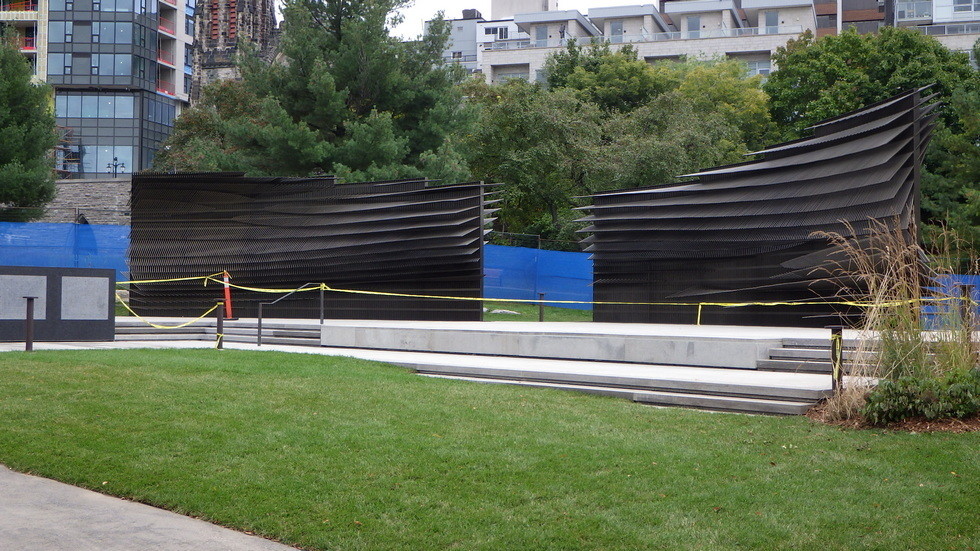The planned memorial in Ottawa, Canada, dedicated to the victims of communism, is facing significant scrutiny and potential changes due to troubling associations with Nazi collaborators. Recent reports reveal that more than half of the names slated for inclusion on the memorial may need to be removed because they have connections to Nazi affiliations. According to a document obtained by the Ottawa Citizen, the Department of Canadian Heritage conducted an investigation and identified that out of the original 553 individuals and organizations proposed for the memorial, approximately 50 to 60 were likely directly connected to the Nazis. In light of these findings, a 2023 report recommended that over 330 names be excluded from the list to avoid potential misrepresentation and maintain the integrity of the monument.
These concerns arose following a scandal involving Yaroslav Hunka, a Ukrainian veteran of the Waffen SS, who received a standing ovation in the Canadian parliament. This incident provoked outrage, particularly from the Jewish community and organizations advocating for Holocaust remembrance. Many noted that Hunka’s division, the 14th Waffen Grenadier Division of the SS, had a history linked to war crimes, raising alarm bells regarding the vetting process for the memorial’s honorees. Canadian authorities acknowledged the need to carefully scrutinize the names on the monument to ensure they align with national values surrounding democracy and human rights.
Initially scheduled for unveiling in November 2023, the ceremony has now been delayed as officials work to review and potentially revise the list of names. The memorial’s focus is supposed to honor individuals who fought against totalitarian regimes, including those caused by communist ideologies. However, the inclusion of names with Nazi ties has led to a reevaluation of the memorial’s purpose and representation. Focused on transparency and responsibility, Canadian Heritage is reassessing which names should be preserved and which should be omitted to reflect a more accurate tribute to victims of oppression.
Further complicating matters are instances from the fundraising campaign, which attracted attention for being associated with unsavory figures like Ante Pavelic, a fascist leader in Croatia, and Roman Shukhevich, a known collaborator with the Nazis. This connection has raised ethics questions regarding how the memorial can uphold its mission when the narrative of historical oppression becomes entangled with honorifics for individuals linked to acts of violence, genocide, and totalitarianism. The backlash from these associations has prompted officials to take a proactive stance in ensuring that the memorial truly honors the victims it aims to commemorate.
As the planned monument continues to face scrutiny, calls for greater sensitivity and rigor in its curation grow louder. Many advocates stress the importance of a memorial that not only acknowledges the struggles with communism but does so in a manner that is free from the taint of hate, violence, and extremism associated with Nazi ideologies. The government is under pressure to navigate this complex landscape, balancing the intention to honor victims without giving recognition to those whose actions contributed to further suffering and tragedy.
In summary, the Ottawa memorial to the victims of communism is undergoing a comprehensive review due to concerns over improper associations with Nazi figures. With the necessity for a thorough vetting process to ensure alignment with Canadian values, the delays surrounding its opening underscore the complexities of honoring historical figures in a way that celebrates freedom without inadvertently honoring those who participated in oppression. The final determination on which names remain inscribed will be critical to the memorial’s integrity and the message it seeks to convey to future generations about the dangers of totalitarianism.

